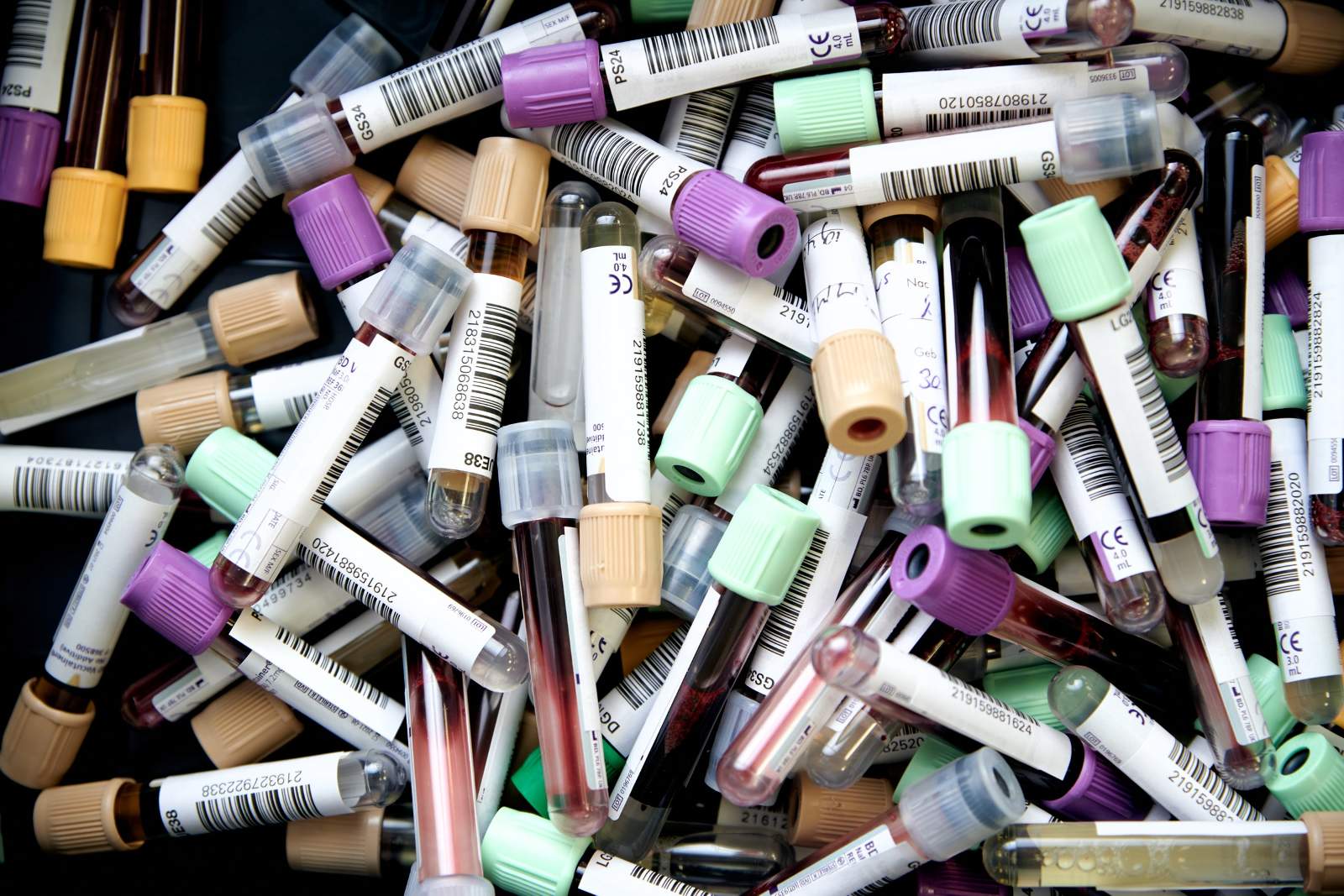If you have been trying to conceive for a while, and have been advised you may need fertility treatment, you may be wondering what tests are required before treatment can start. These tests are an important part of fertility treatment and will help doctors personalise your care and advise on the treatment that is most likely to give you a baby. In this blog, we talk about fertility testing before IVF and explain what you can expect of this process.
History – medical background
Initially, the clinical team must collect a thorough clinical history. This includes several questions about your medical, surgical, gynaecological and obstetric history, andrological history, lifestyle habits.
It’s important that both partners complete this first step as it will help doctors guide their reasoning on what could be affecting your fertility and what examinations are required. You can also complete a very thorough clinical history here.
Physical examination
After you have answered questions about your history, the clinical team will perform a physical examination. This examination usually starts top to bottom, to check every body system and assess your overall health and wellness. The most important part of the physical examination is the examination of the reproductive system.
In women, this consists of a breast examination and a gynaecological examination, including a pelvic exam to check the vagina, uterus, ovaries, fallopian tubes and cervix and doing a pap smear. An ultrasound scan is usually done at this point to check for any abnormalities in the uterus, fallopian tubes and ovaries. During the scan, you may also have an antral follicle count check where the clinician counts the number of follicles. If doctors believe there may be problems you’re your uterus or fallopian tubes, a hysterosalpingogram (HSG) – a camera inserted through the cervix, into the uterus – is done in order to assess the anatomy of the endometrial cavity of the uterus and the fallopian tubes.
Typical findings at this stage of the process include possible infections in the vagina or vulva, miomas or fibroids in the uterus, large follicles in the ovaries indicative of PCOS, or a small amount of follicles indicative of low ovarian reserve, scar tissue in the uterus or pelvic area which could be indicative of endometriosis.
In men, this includes examination of the penis and testicles. Doctors are looking for possible signs of problems that could affect sperm production. For example, abnormalities in the penis, location of the urinary meatus anywhere else other than the tip of the penis, infections or discharge, small testicular volume, undescendent testicles, abnormal masses, swelling, varicocele (dilated veins in the scrotum).
At this point, you will also be required to do a sperm test which looks at the amount of sperm, its shape and movement.
Blood tests
Blood tests are an important part of fertility testing before IVF. These tests provide a better understanding of the hormone levels in your blood. As hormones are essential to regulate reproduction in women and men, these can give us direct insight into your fertility. Your hormone levels also help clinical teams decide what medication should be prescribed and what treatment is most likely to help you get a baby.
In women who menstruate, blood tests are done between day 2 and 5 of the cycle. If you are not menstruating or have very irregular/long periods, you can test at any time. Blood tests for women include:
- Follicle Stimulating Hormone (FSH)
FSH is a hormone produced by the pituitary gland in the brain. In women, this hormone is essential for follicle development and egg maturation. FSH levels peak before ovulation and can increase in menopause. - Luteinizing Hormone (LH)
LH is a hormone produced by the pituitary gland in the brain. In women, this hormone increases before ovulation, being responsible for the later stage of egg maturation and its release from the ovary. - Estradiol (E2)
E2 is the most active estrogen, mainly produced in the ovary. Normal levels of estradiol are important for ovulation, conception, and pregnancy, in addition to promoting healthy bone structure and regulating cholesterol levels in females. - Anti Mullerian Hormone (AMH)
Anti Mullerian Hormone (AMH) is a glycoprotein hormone produced by the follicles in the ovaries. It correlates with the total number of antral follicles over both ovaries and is considered the earliest and most sensitive test of ovarian reserve. Your age will determine whether your AMH result is normal. - Testosterone
Testosterone is a sex hormone essential for sex drive, muscle mass, fertility, and mood. Women produce a small amount of testosterone which is converted into female sex hormones. However, when female bodies produce an excess amount of testosterone or other androgens, their bodies can’t keep up which may result in the development of acne, blood sugar problems, excessive hair growth (usually on the face), infertility, lack of menstruation, obesity and polycystic ovary syndrome (PCOS). - Prolactin
Prolactin inhibits follicle stimulating hormone (FSH) and gonadotropin-releasing hormone (GnRH), which allow eggs to develop and mature. It also stimulates milk production after childbirth. Hyperprolactinemia, meaning abnormally high levels of prolactin, can prevent a woman from conceiving.
Male fertility is also regulated by hormones. Blood tests for men include:
- Follicle Stimulating Hormone (FSH)
Follicle Stimulating Hormone (FSH) is produced by the pituitary gland in the brain. In men, FSH is responsible for stimulating spermatogenesis – the process of forming new sperm - Luteinizing Hormone (LH)
Luteinising hormone (LH) is produced by the pituitary gland in the brain. In men, LH hormone stimulates the Leydig cells in the testes to produce testosterone. - Testosterone
Testosterone is the major androgen in the testis that regulates spermatogenesis – the process of forming new sperm. If your testosterone is low, you may have low sperm production, reduced sex drive and erectile disfunction. - Dehydroepiandrosterone (DHEA-S)
DHEA-S is the most abundant steroid hormone in the blood. It is secreted by the adrenal glands and it is a precursor for several important hormones, including testosterone. - Sex Hormone-Binding Globulin (SHBG)
Sex Hormone-Binding Globulin (SHBG) is a protein in the blood that binds to sex hormones like testosterone, meaning that they are unavailable to be affect the cells. Measuring the level of SHBG in your blood gives important information about your levels of free or unbound hormones which are biologically active and available for use.
If you have been trying to conceive for a while, and are considering fertility treatment, having these blood tests done at-home can bring you the answers you need to get started with the next step.


